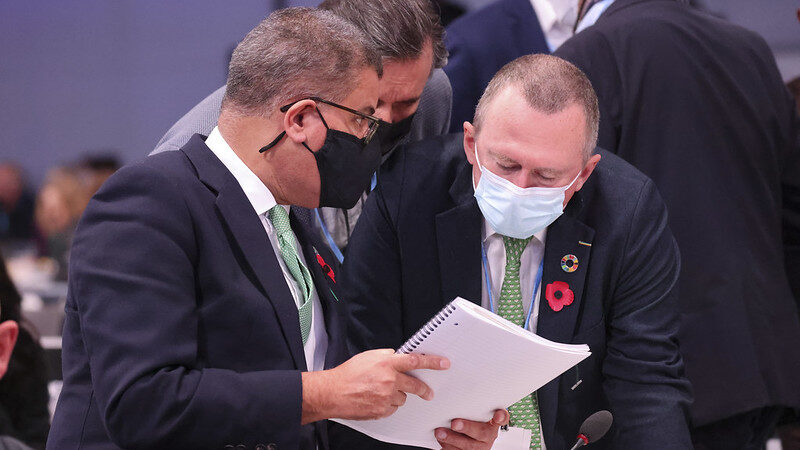Following a coup, the new government of Gabon has arrested four environment ministry officials on allegations of corruption.
State media agency Agence Gabonaise de Presse (AGP) reports that British-born former environment minister Lee White and three other officials of the old regime of Ali Bongo have been placed under house arrest.
AGP, which is controlled by the new regime, cites a public prosecutor in Gabon, who says they are accused of a series of crimes related to the auctioning off of forestry permits and the alleged setting up of an unusual bank account to collect hundreds of thousands of dollars from fines and wood sales.
Advocate for forest finance
White has been prominent in UN Climate talks, positioning himself as a defender of African interests and a leader in the defence of the forests of the Congo basin.
Under his leadership, international funds have poured into Gabon for rainforest protection, through the Central African Forest Initiative (Cafi) and a recent debt-for-nature swap.
White served under Ali Bongo, who has took over the country from his father in 2009 and won a series of heavily disputed elections.
The latest election was in August. Bongo was declared the winner despite allegations of electoral fraud. The Economist democracy index classed Gabon as an authoritarian regime.
On election day, White tweeted in support of the government’s move to shut down the internet “as a precaution following some provocative statements by opposition politicians”.
I am back in Libreville after the vote, waiting for the results to be announced. All is calm but the government has cut internet as a precaution following some provocative statements by opposition politicians. pic.twitter.com/LmwfOVnSik
— Prof. Lee White CBE (@LeeWhiteCBE) August 29, 2023
A few days later, the military seized power, arresting Bongo and his allies. On Wednesday, AGP reported that White was placed under house arrest.
The allegations
The new authorities also arrested former director of the government’s forestry department Ghislain Moussavou, financial adviser Jean Guy Diouf and inspector of services Ghislain Aimé Boupo.
French newspaper Le Monde reports that the arrests relate to a complaint by the Gabonese union of water and forest professionals, known in French as Synapef.
Union spokesperson Maurice Steed Mve Akue told Le Monde that they complained to the police last May.
They did not receive a response but complained again after the coup as “the justice system now has more room to maneuver to do its work”.
They allege that the ministry fined forest operators and sold abandoned wood and that money, worth several hundred thousand dollars, was put into a separate account to the ministry’s regular account.
Exposed: carbon offsets linked to high forest loss still on sale
This money was used to finance “missions by the minister, associations, studies by foreign consultancy firms and communication actions”, the union alleges.
Akue told Le Monde “there is no traceability or justification for part of the expenses incurred”.
The union also raised concerns about two forestry permits awarded to a joint venture between the government and the Singaporean group Olam, which has been cutting down forests for palm oil in the country.
They claim that the permits were awarded outside of the right regulatory areas and without a call to tenders. Ali Bongo’s son was deputy head of this joint venture until he joined government in 2019.
The new regime
White has been replaced as minister by a solider called Colonel Maurice Ntossui Allogo. While he has little environmental experience, a ministry official told Le Monde “he receives, listens and takes notes”.
He is being advised by Tanguy Gahouma, a veteran climate diplomat who also represented the last government and chaired the African group in climate talks in 2020 and 2021.
Nicaise Moulombi is the head of the Croissance Santé Environnement campaign group. He told Le Monde he wanted a review of where international climate finance has ended up.
“We want to know where the conservation money has gone,” he said. In particular, he was concerned about the Cafi funds and about the debt-for-nature swap, organised by US campaign group The Nature Conservancy (TNC).
TNC said that a Conservation Trust Fund has been set up to manage money from the debt-for-nature swap.
It is an “independent, non-profit entity with public and private representation on its board of directors” and “will follow global best practices for governance”, a TNC spokesperson said.
In June 2021, Norway paid Gabon $17m through the Cafi forest protection scheme. Six months later, Gabonese park rangers threatened to strike, complaining their salaries were often paid several months late.
Cafi has been invited to comment.
This article was updated on 17 October to include The Nature Conservancy’s comment
